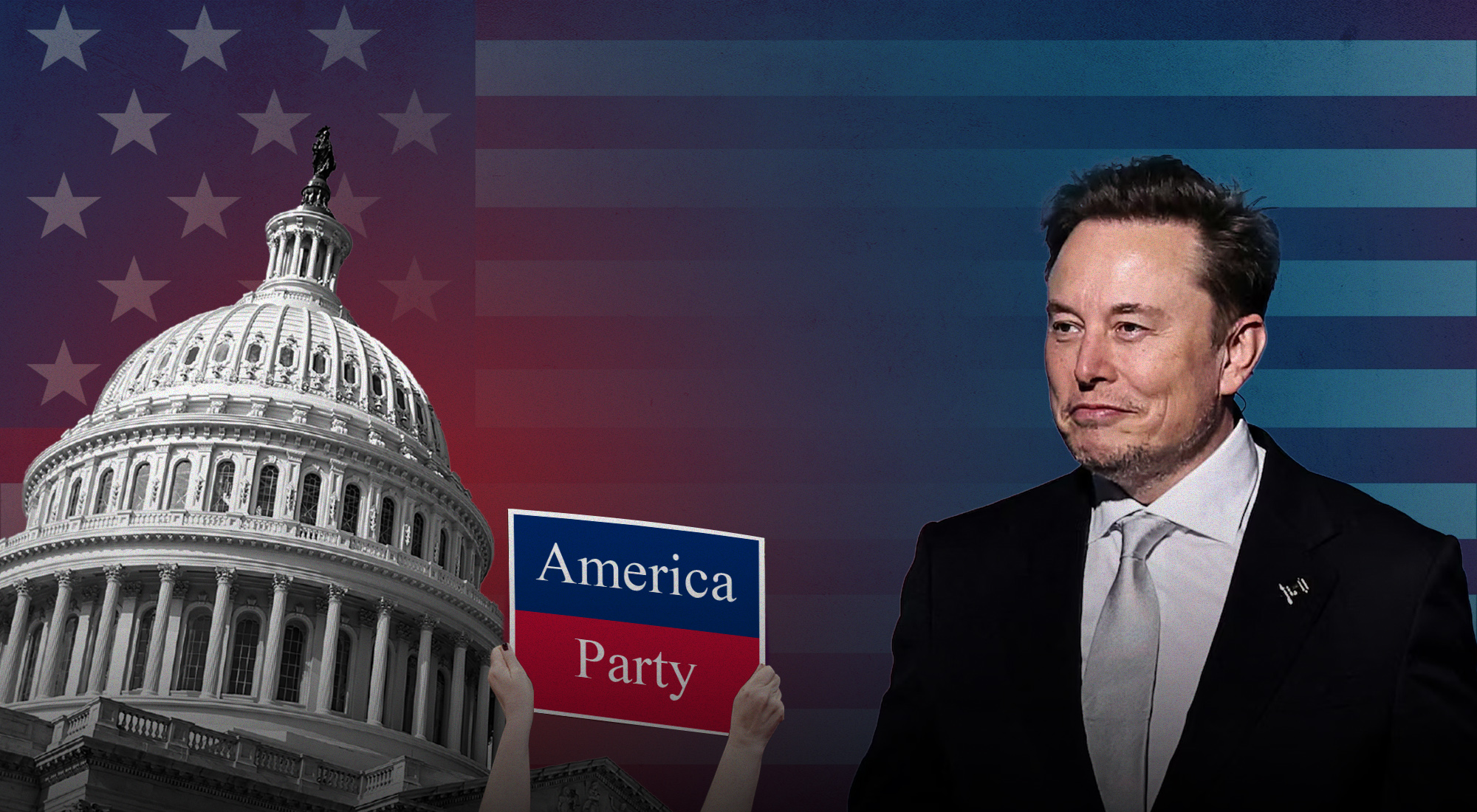
Snapshots
What If Musk Succeeds with the “America Party”?
06 Jul 2025
Amid the exceptional developments unfolding in the American political arena—especially at the legislative level—Elon Musk announced the establishment of the “America Party” to represent centrist voters. This announcement followed a poll conducted by Musk among X platform users, which showed 65% support and 35% opposition. While the results of this poll do not necessarily reflect the views of the American electorate, considering that participants were from around the world, the idea of founding a new political party led by Musk warrants serious attention.
Procedurally, establishing a political party in the United States is not overly complex. The process involves several stages: officially registering the party in one of the states (since there is no unified federal body for party registration), collecting signatures to gain ballot access, appointing a national committee to handle fundraising, policy formulation, and other tasks, registering with the Federal Election Commission, nominating candidates for elections, obtaining official recognition (so the party can contest elections in all states), and complying with campaign finance and transparency laws, including ensuring there is no foreign funding.
Given the dominance of the Republican and Democratic parties, competing with them is no easy task. That’s why Musk is targeting a specific segment of the American electorate—centrist voters. Musk is not aiming to win a congressional majority or to run in the upcoming presidential election. Instead, what he seeks to do—according to his statements—reflects a clear understanding of the rules of the political game in America. Musk believes the party’s first phase should focus on Congress, specifically by securing two or three seats in the Senate (which has 100 seats), and 8 to 10 seats in the House of Representatives (which has 435 seats). This step would enable Musk to play a pivotal role in tipping the balance in favor of either party when it comes to passing or blocking legislation.
Future phases of the party’s development would undoubtedly rely on the reputation it manages to build. Over time, it could gradually evolve until it reaches a point where it competes seriously with the two dominant parties.
We must also not overlook the challenges Musk will face in this endeavour. The American political environment is highly polarized and challenging to navigate, given its deeply entrenched traditions. Moreover, its major backers and supporters include powerful corporations and various lobbying groups. Another challenge Musk will undoubtedly face is the well-known political and media attacks that are common in the U.S. and that often influence voter sentiment on the ground. This factor could easily be exploited by both parties (Republican and Democratic), especially given Musk’s inconsistent liberal and right-wing stances. Additionally, targeting Musk economically is quite feasible, especially by highlighting the financial losses he has sustained as a result of Trump’s recent decisions.
On the other hand, several advantages play in Musk’s favor: (1) He enjoys enormous popularity due to his national media presence and ownership of the X platform. He played a central role in the election of former President Donald Trump, which likely increased voter support for him. (2) His wealth allows him to fully fund his party without relying on external donors. (3) His unconventional ideas are likely to resonate with voters, especially in today’s rapidly changing world, where many believe that traditional political approaches no longer suffice. (4) Most importantly, Musk enjoys strong support from youth and entrepreneurs who align with his vision. Their support—regardless of its form—will undoubtedly play a key role in the success of Musk’s political venture.
In conclusion, the idea of the party has yet to materialize on the ground. But if it does, Musk’s prior experience dealing with both major parties suggests that the political landscape could be full of surprises. It’s also possible that this move is a strategic maneuver intended to challenge the political direction taken by Trump, which has gone against Musk’s business interests—a possibility that carries considerable weight. In any case, should the party be established in the near future and participate in the November 2026 midterm elections, achieving the type of success Musk envisions in its first phase, then the political landscape may shift toward centrism. The party could become a decisive force in approving or rejecting legislation, based on Musk’s interests. In that case, it would not be surprising if both major parties sought to align with Musk’s party in hopes of building trust and achieving shared objectives.


